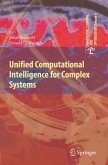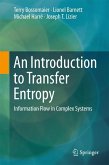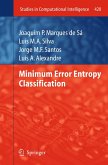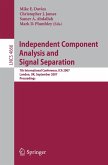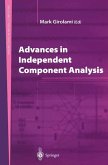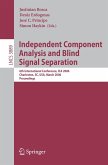Independent Component Analysis (ICA) is a signal-processing method to extract independent sources given only observed data that are mixtures of the unknown sources. Recently, blind source separation by ICA has received considerable attention because of its potential signal-processing applications such as speech enhancement systems, telecommunications, medical signal-processing and several data mining issues. This book presents theories and applications of ICA and includes invaluable examples of several real-world applications. Based on theories in probabilistic models, information theory and artificial neural networks, several unsupervised learning algorithms are presented that can perform ICA. The seemingly different theories such as infomax, maximum likelihood estimation, negentropy maximization, nonlinear PCA, Bussgang algorithm and cumulant-based methods are reviewed and put in an information theoretic framework to unify several lines of ICA research. An algorithm is presented that is able to blindly separate mixed signals with sub- and super-Gaussian source distributions. The learning algorithms can be extended to filter systems, which allows the separation of voices recorded in a real environment (cocktail party problem). The ICA algorithm has been successfully applied to many biomedical signal-processing problems such as the analysis of electroencephalographic data and functional magnetic resonance imaging data. ICA applied to images results in independent image components that can be used as features in pattern classification problems such as visual lip-reading and face recognition systems. The ICA algorithm can furthermore be embedded in an expectation maximization framework for unsupervised classification.
Independent Component Analysis: Theory and Applications is the first book to successfully address this fairly new and generally applicable method of blind source separation. It is essential reading for researchers and practitioners with an interest in ICA.
Dieser Download kann aus rechtlichen Gründen nur mit Rechnungsadresse in A, B, BG, CY, CZ, D, DK, EW, E, FIN, F, GR, HR, H, IRL, I, LT, L, LR, M, NL, PL, P, R, S, SLO, SK ausgeliefert werden.



